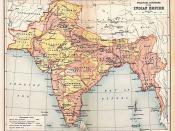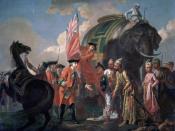Since the French Revolution, the idea of self-determination has spread all around the world, unifying peoples inside nations, starting new revolutions, erasing empires, freeing colonies and scaring modern states. There are few models explaining the emergence of nationalism and the definitions of this phenomenon vary from an author to another. Anthony D. Smith says it is an ideological movement aiming at reaching self-determination and independence in the name of a nation. He also says that humanity is naturally divided into nations. But this concept is rather revealing the nationalist way of thinking because a quick look in the past is enough to show that the independence process is not instinctive. Many writers like Boyd Shafer and Louis Snyder have studied the subject since World War I in order to explain the subject but - as says Arthur Waldron - enclosing nationalism in a theory has proved to be a difficult task.
An historical case of the nationalism problem is the nationalist movement in India. Indians celebrated 50 years of independence from British rule in August 1997. The end of the empire in India was a massive blow to British imperialism.
This term paper first studies the steps of the western intrusion into India and then tries to describe how the Indian nationalism was born.
II. Main part A. The Western Intrusion 1. European Imperialism When the European community began to expand in India, a new way of life entered cities. It was copied by the indigenous people who were seduced by western techniques. Occidental education was the main vector of acculturation since young Indians were very receptive to the European message. So the new Indian generation quickly became nationalist, socialist, and democrat. Masters like Cavour or Mazzini were the new heroes for the young students. That is why the...


